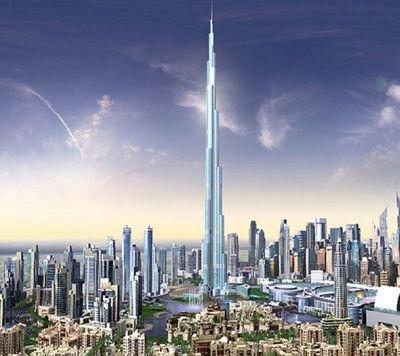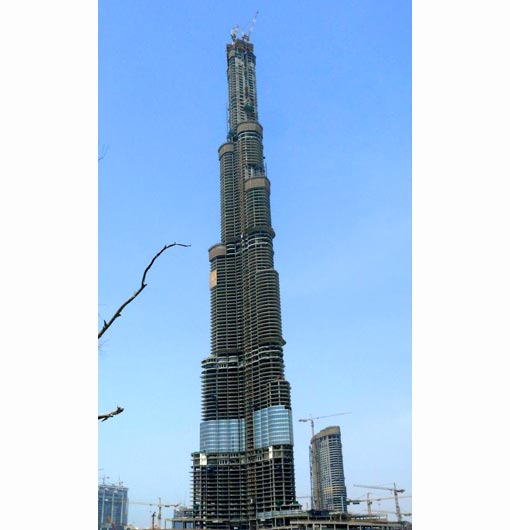
How is this is occurring?
From a variety of sources, I found that the plans to build this over-the-top city were well designed. But, with the added need to complete construction within nine years it no wonder why cheap labor was a necessity.
The website Human Rights Watch explains,
"Sponsors and employers often confiscate migrants' documents, including passports and residence permits, restricting their freedom of movement and ability to report mistreatment. Migrants in the Gulf states typically can't obtain an exit visa without the approval of their sponsor or employer, sometimes placing them in situations that amount to forced labor.Migrants in undocumented or "irregular" situations are often indebted to traffickers, and have little choice but to work under highly exploitative conditions . Documented migrants can easily slip into illegal status when unscrupulous employers and sponsors deliberately let residence permits expire, or literally sell workers to other employers, thereby invalidating their work permits."The spark of tourists began after Lebanon faced a civil war between the years of 1975-1990. Lebanon was labeled unfit for vacationing, and left tourists open to establish a new vacationing spot. Thanks to the cleverness of UAE's elected vice president, Sheikh Mohammed, a plan was devised to promote UAE as a desired destination for Europeans traveling to the Far East.
The United Arab Emirates: Statistical Appendix describes how the growth of the economy stemmed from industries dependent on tourism. "The growth of the economy is closely tied to labor-intensive sectors: in 2005 wholesale and retail trade and the restaurant and hotel businesses grew by 15 percent; the manufacturing sector by 13.9 percent; and finance, insurance, and the real estate sectors each by 12 percent." The expectation of labeling Dubai as a desired destination was not a simple over estimation. And in a recent list complied by Research Company Global Property Guide, Dubai has now come in at 15th place in a list of the worlds most expensive property locations.
NPR covers this story on the show, All Things Considered.
Robert Smith interviews Dr. author of "Dubai: The Vulnerability of Success." a quick explanation of where Dubai went wrong, and how the signs were clear from the start.
 Dubai Proposal
Dubai Proposal Current Progress
Current Progress 
Burj Dubai, United Arab Emirates, to be completed in 2009 (2,684 ft - 818 m)
MENASSAT- which is a website which tries to accurately portray news, trends and events concerning the media in the twenty-two countries of the MENA region (Middle East & North Africa, more specifically the twenty-two member states of the Arab League). In Arabic the word Menassat means "platform". In an attempt to cover the exploitation occuring in Dubai, they sent a photographer (Simba Russeau) and a writer (Jackson Allers) on a five-day journey to speak with the workers and try to paint a picture both through the use of interviews and images.
Jackson describes the living situation as such,
"Squat, nasty and with no real ventilation, the 300 or-so workers stayed 10 to a room in the sparse cement cinder block-housing complex. Bunk beds were stacked in rows along the walls with no closets in rooms, which were no bigger than 6 meters by 5 meters. All of their belongings were out in plain sight. There was no privacy."Here is a part of an interview between Jackson, the writer, and Mohammed Jitumiya, a supervisor of some of the men working in construction.
Jitumiya tells of his wages, "Yes 3,000 people where I live. I make 520 Dirhams per month. They take 120 out of my salary each month for rent and food,"
With the global impact resulting from the demise of the US dollar, UAE currency, Dirhams, have also lowered in value. Jitumiya was making roughly $149 per month for heavy construction work. And, as the dollar weakens, so do his salary rates.
Worker Complications
It was not until post 9-11 that Arabs began investing their oil wealth into their own countries that the boom of production began and cheap labor was used as an easy option. Thus began the importing of people from India, Pakistan and other less fortunate East Asian countries.
Not only are the workers promised a false sense of opportunity but they are placed in a foreign place without the help of family members and those who know them as the individual that they are back in their homeland.
Migrant workers employed through the private sector in the UAE are sponsored by UAE citizens under employment contracts for one to three years, subject to renewal. When the time comes that the worker's work permit expires, and the possibility of reissue is not feasible, the worker is forced to leave the country regardless of the amount of time spent working in the country.And if the worker has any family members also living within the country then the entire family must leave.
Currently, A good majority of the construction projects have been put on hold. The projects are now in a pending state with an estimated worth of $582 billion, according to the market research firm, Proleads. Due to aid ($10 billion) received from UAE's capital, Abu Dhabi, some projects are still going ahead. As for the rest of the employees, many are unemployed and stuck here.They are part of the large group of foreign laborers that built Dubai when the economy was booming. Most workers have been unemployed for a few months now but have been forced to work. Some employees of these men have been known to hold their passports and proceed to order them to wait until work picks up.
Mandy Clark (Voice of America Website) concludes an article with the statement,
"It is a hope to return to boom times and to complete a skyline of half-finished buildings - a hope that now seems distant."
In efforts to try and gain a voice many workers have begun to point out needs for contracts and listings of grievances. All too often many cases of exploitation, abuse and misinformed migrant workers go undetected due to the fear instilled in the workers conscience. Here are some titles that have been published in the local papers(Khaleej Times) and other publications(Gulf News,), “Captive workers escape from housing compound,” “Construction worker dies – third in fortnight,” “Workers protest to get dues of over nine years,” or “Abandoned workers fear their plight will be ignored.”
Besides the press there is little action being taken by civil societies and government officials. The lack of independent organizations means that these companies are easily getting away with horrible crimes against humanity. Basically, the workers do not believe that rights are ensured and so the crimes continue to exist and reporting of them is never systematically documented.
Even with such little hope for these workers, there still manages to be efforts made toward organizing demonstrations, strikes, and even rioting. In 2005 a large group of over a thousand workers blockaded a major highway in Dubai and they insisted their unpaid wages be given to them. Another example in 2006, was when thousands of workers for Besix, a Brussels-based company, went on strike to voice a need for better wages. At the time they were only working for $4 a day.
Personally I have found all this information to be quite disturbing from both a Humanitarian and Environmental stand point. There is much evidence which displays their blatant disregard to consider both during this whole fiasco. I honestly would only visit the country if I were granted the opportunity to only see the natural features which exist within the borders. I mean the place is located within a desert and they are desiring to constantly have access to items which can only be imported. The lifestyle is much to elaborate for my liking and I have little desire to call it a vacationing spot in the future. Their current struggles are important to take into account because we as humans should have learned from the mistakes which were made by past generations. We should hopefully take this example and apply it to our own country, America, and notice that they are not far from our own country's urban expansion. Luckily we are headed in a brighter direction but we have left behind a legacy that others are adopting too.
No comments:
Post a Comment